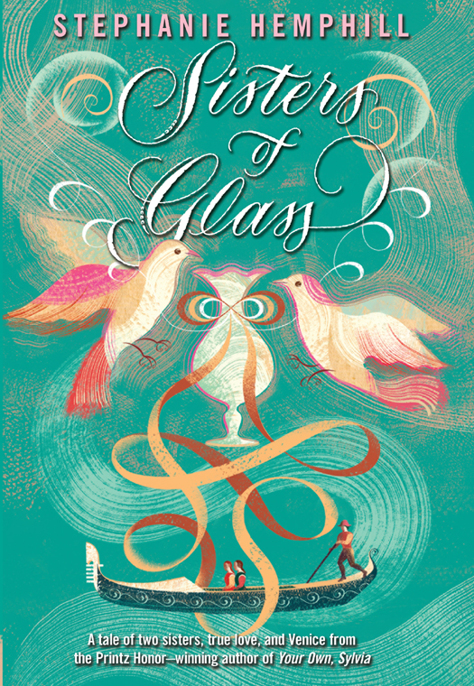
Sisters of Glass
فرمت کتاب
ebook
تاریخ انتشار
2012
Lexile Score
810
Reading Level
3-4
ATOS
5
Interest Level
6-12(MG+)
نویسنده
Stephanie Hemphillشابک
9780375897016
کتاب های مرتبط
- اطلاعات
- نقد و بررسی
- دیدگاه کاربران
نقد و بررسی

March 15, 2012
Love and conventional roles for women collide in this page-ripping tale from 15th-century Venice. The gifted Printz Honor-winning poet (Your Own, Sylvia, 2007, etc.) turns to Renaissance Italy to probe timeless questions of class, gender roles and family ties. Setting her story on the tiny island of Murano in the late 1400s, Hemphill shines a light on the world of glassmaking as crafted by the well-established Barovier family. The tale's tension centers around Maria's promise to honor her dying father's wish that she marry into Venetian nobility. This responsibility should have fallen to her older sister, Giovanna, whose beauty, charm and upbringing have primed her to become a noblewoman her entire life. At age 15, Maria feels the expanse of her world beginning to shrink as her mother starts preparing her "to be bartered away." She finds that "learning to be a lady / is like learning / to live within a shell." Maria's misery only increases when an alluring glassblower arrives on the scene, making her long even more to be allowed to preserve the family's social station by exercising her talents as a glassmaker. Hemphill's deft sense of line, engaging language and fast-paced plot combine smoothly as molten glass in this intricate family drama, in which modern self-determination eventually trumps tradition. A fiery, feminist love story young teens, particularly girls, should just devour. (Verse novel. 11 & up)
COPYRIGHT(2012) Kirkus Reviews, ALL RIGHTS RESERVED.

May 1, 2012
Gr 7-10-In 15th-century Italy, girls have few options beyond following the path laid out for them by society and their families. As Maria, the younger daughter of a Murano glassblowing family, inches closer to marrying age, 15, she begins to realize the implications of her father's dying wish that she, and not her sister, Giovanna, should marry a nobleman. Maria feels ill-suited to such a life, and beautiful, refined Giovanna would gladly fill her shoes. When Luca, a young glassblower, is hired to help ease the family's workload, Maria finds her attention wandering his way, and her plight grows more desperate, and she must determine whether she can control her own destiny. The tale's verse format makes for a quick read, in many ways a plus, though there are some parts of the plot that lack dramatic tension, such as the relationship between Maria and Luca. Further, while beautifully written, the free verse doesn't showcase Hemphill's stylistic capabilities, as did Your Own, Sylvia (Knopf, 2007). Still, fans of historical romance fiction, especially those who enjoyed Mary Jane Beaufrand's Primavera (Little Brown, 2008), will welcome this tale and its happy ending.-Jill Heritage Maza, Montclair Kimberley Academy, Montclair, NJ
Copyright 2012 School Library Journal, LLC Used with permission.

Starred review from April 15, 2012
Grades 6-10 *Starred Review* A romantic tale of destiny, fidelity, and true love is perfectly placed in fourteenth-century Murano, Italy (of glassmaking renown) and just as judiciously told through verse. Giovanna and Maria are daughters of a brilliant glassmaker. Just before his death, he declares that younger daughter Maria, who was born the week he made a tremendous discovery, is to marry a nobleman. Vanna, the older and more marriageable both by tradition and nature, retreats from her warm relationship with Maria into bitterness and anger. Maria is disdainful of her training to be a society woman and yearns instead to spend her time with her art or in the family's furnaces with Luca, an employee whose skill with glass is the marvel that leads Maria, who once aspired to be a glassblower, to fall in love with him. How the sisters navigate their divide, reconcile, and begin to work with each other to create livable futures from the hands they have been dealt outshines their respective love stories without minimizing them. Though the verse is anything but sparse, nothing is wasted in the telling of this lyrical tale. In a landscape, time, and plot rich with descriptive opportunity, Hemphill's verse selects and illuminates the best bits, intensifying them like light through glass.(Reprinted with permission of Booklist, copyright 2012, American Library Association.)

























دیدگاه کاربران